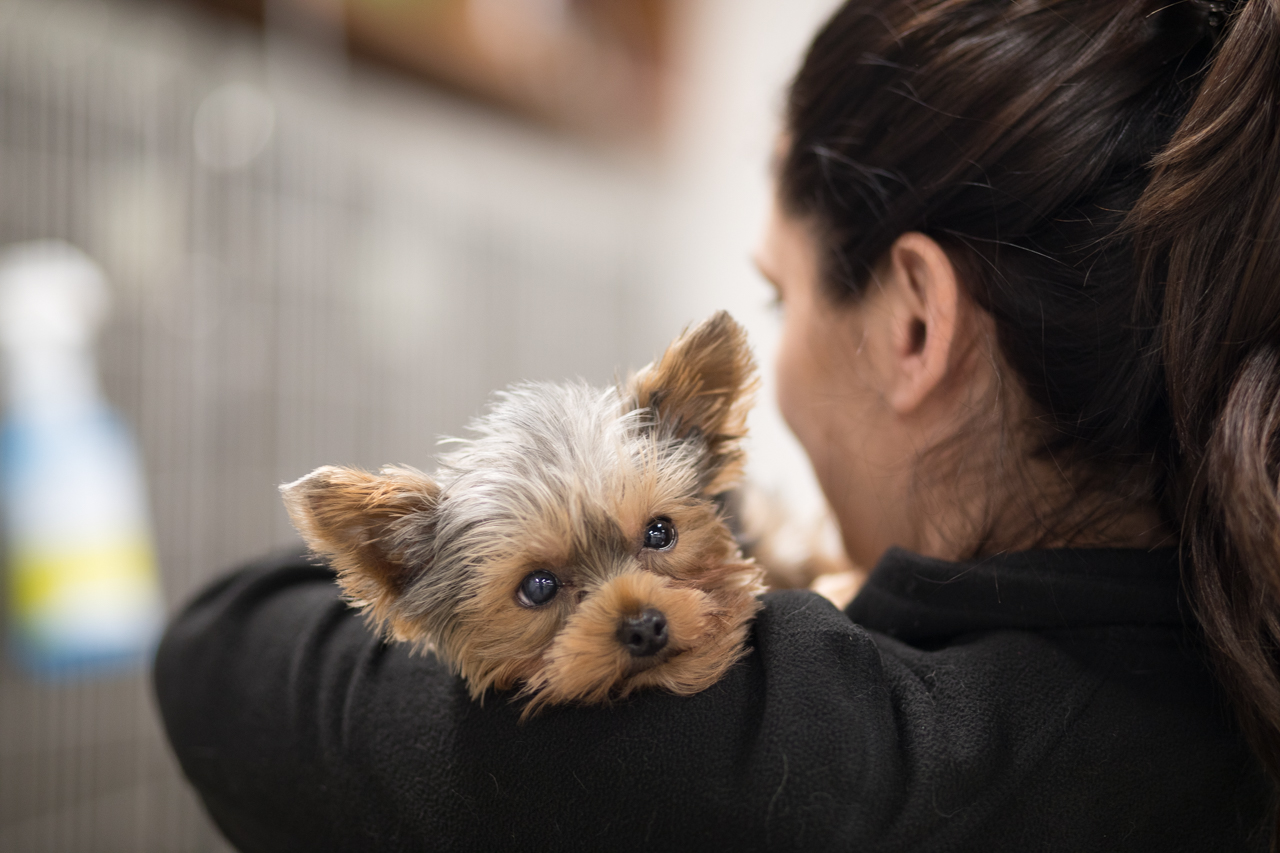
Dog Flu: Symptoms, Causes, and Treatment
Dr. Katie Freeman
Call & Speak with a doctor Open 24/7, Even Holidays!
Walk in today for:
Emergencies
Point-of-Care Ultrasound
Urgent Care
X-Rays
Diagnostics + Testing
End-of-Life Care
Surgery
Treatment + Hospitalization
If your dog has never had the flu, you might not be sure what to expect. Knowing what to do about dog influenza is important to protect your dog from secondary infections and other complications that are common to this condition.
Once you know the symptoms, causes, and treatment for dog flu, you will be better able to treat your pet and care for their well-being as they heal. Dogs can experience a wide array of symptoms related to this kind of illness, which makes identification of the symptoms important. Owners will need to know what the full range symptoms can look like so that they can recognize when their pet needs to see the vet.
Symptoms
The symptoms of canine flu are a lot like the symptoms of human flu. The main ones are listed below:
- Cough
- Runny nose
- Fever
- Digestive issues
These kinds of sicknesses can last for 10-21 days, and your dog might experience various symptoms throughout the illness. Recognizing the signs of dog flu is key so that you can take your pet to the vet and get them treated before they develop secondary infections or other kinds of problems. While some pets experience only very mild symptoms associated with dog flu, others can be quite sick. Puppies and elderly dogs are much more likely to experience severe symptoms than dogs of other ages.
Causes
The flu is caused by various different viruses, which pets are often exposed to when they are at the dog park or staying at a boarding/training facility. Doggy daycares can also be a place where a dog might pick up this kind of illness. Dogs are required to be vaccinated against these conditions when they visit this kind of shared environment, but sometimes pets still get sick.
Your dog will not be able to receive treatment for the flu virus itself, but your vet can provide treatment for secondary infections and other signs and symptoms that are causing your pet discomfort. Your pet will need to get better mostly on their own, but if they are quite sick, your vet could administer antivirals or give IV fluids to help make them feel better more rapidly.
Treatment
As mentioned above, these illnesses are caused by a virus, just like in people. There is no cure for a virus, and pets will have to get better with rest and some supportive care. Your vet cannot cure the virus itself, but they can administer treatment to help your dog feel better as they are recovering.
Some pets will need to stay in the animal hospital under observation for a few days to receive treatment for dehydration or lung complications. Most pets will be sent home with a few medications that will help keep them comfortable as they are getting better on their own. Dogs with flat faces (brachycephalic breeds), like Boston Terriers or Boxers, will be more likely to experience secondary issues with their breathing and might have to stay in the vet clinic until they are able to breathe without discomfort.
Your vet will likely recommend that all of your pets are vaccinated against the flu to try and prevent them from experiencing the worst of the symptoms that can be associated with this illness. While the vaccine cannot completely prevent them from getting the flu, it can make their symptoms much milder, and it can shorten the duration of the illness as well.
Since secondary infections are common in dogs with the flu, be sure that you keep an eye out for dogs that are breathing heavily or seem to have no energy despite having been sick with the flu for a few days. These pets might need to go back to the vet to be examined again for secondary infection or other complications related to their case of the flu.
How Long Will It Take for My Dog to Get Better?
Your dog will likely be sick for two to three weeks with influenza. During the time when they are contagious, they need to stay away from other dogs. This means that they cannot be boarded, go to the dog park, or attend doggy daycare. Be sure that you are not taking your pet out to see other dogs until their symptoms have cleared and they have been cleared by your veterinarian. You will also want your pet to avoid strenuous activity until they have started to feel better so that they do not relapse and become sick all over again.
Don’t Hesitate to Seek Veterinary Care if Your Dog Has the Flu
In most cases, when your dog has the flu, it is really easy to recognize the symptoms and signs of this condition. Your pet will appear just like someone with the human flu, and you should consider this a good reason to take your pet to see your veterinarian. Your vet can give your pet some medications to help them to feel better, and they will also be able to examine them for secondary concerns like lung involvement or other kinds of infection.
The dog flu can take a few weeks to run its course, and your pet will need to rest and stay away from other dogs during this time period. Once your dog is symptom-free and seems to be feeling better again, you can go back to your usual routine and take your pet out to be around other dogs. Preventing the spread of dog flu is just as important as making sure that your pet gets the treatment that they need in a timely fashion.
For more information on dog flu, contact VEG by calling one of our locations. VEG has locations all over the country, with compassionate emergency vets who are available 24/7 to help you and your pet. When you come to Veterinary Emergency Group, you can be rest assured that your dog will get the proper care they need.

